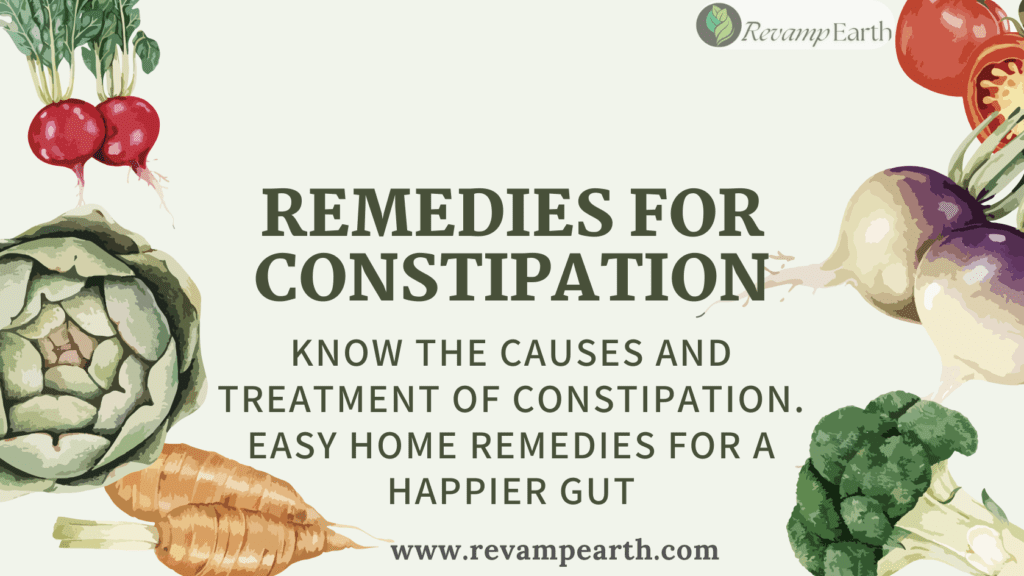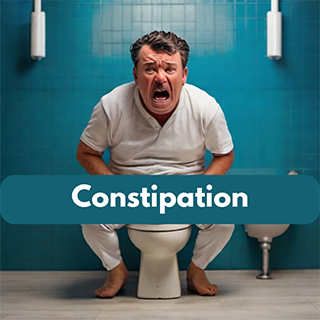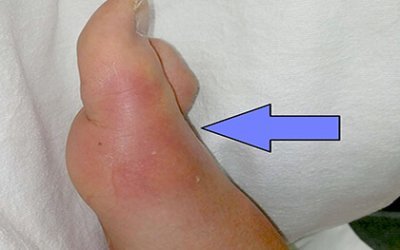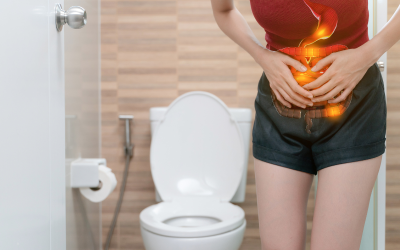Say Goodbye to Constipation: Causes and Easy Remedies

Constipation is a common digestive issue that occurs when bowel movements become infrequent or difficult. It is characterized by the passage of hard, dry stools and is often accompanied by discomfort. While occasional constipation is generally benign, chronic or persistent issues can lead to various consequences in the long run.
Failure to address constipation may result in complications such as hemorrhoids, anal fissures, and diverticulitis. Prolonged straining during bowel movements can contribute to the development of these conditions, causing discomfort and potentially leading to more severe health issues. Additionally, untreated constipation can impact overall well-being, affecting energy levels and disrupting daily activities. Understanding the causes and implementing effective remedies is crucial in preventing these potential consequences and promoting a healthier digestive system.
Complications of Constipation:
Constipation, if left untreated or chronic, can lead to various complications. Some of the potential complications include:
Hemorrhoids: Straining during bowel movements can cause swollen blood vessels around the rectum and anus, resulting in hemorrhoids. These can be painful and may bleed.
Anal Fissures: Hard, dry stools can cause small tears in the lining of the anus, leading to anal fissures. This can result in pain, bleeding, and discomfort.
Rectal Prolapse: Chronic constipation may contribute to the weakening of the rectal muscles, leading to a condition known as rectal prolapse where the rectum protrudes from the anus.
Diverticulosis and Diverticulitis: Constipation can contribute to the formation of small pouches (diverticula) in the colon. If these pouches become inflamed or infected, it can lead to a more serious condition known as diverticulitis.
Impacted Bowel: Severe or prolonged constipation can lead to impacted stool, where hardened feces accumulate in the rectum and become difficult to pass. This may require medical intervention to resolve.
Bowel Obstruction: In rare cases, chronic constipation may lead to a complete blockage of the intestines, causing bowel obstruction. This is a medical emergency and requires immediate attention.
Decreased Quality of Life: Persistent constipation can negatively impact one’s overall quality of life, leading to discomfort, frustration, and a reduced ability to perform daily activities.
It’s important to address constipation promptly, especially if it becomes chronic or is associated with other concerning symptoms, to prevent the development of these complications. Lifestyle modifications, dietary changes, and medical interventions may be recommended based on the severity and underlying causes of constipation. Always consult with a healthcare professional for personalized advice and appropriate treatment.
Possible Causes of Constipation:
Constipation can have various causes, and it often results from a combination of factors. Some common causes include:
Dietary Factors:
Low Fiber Intake: Diets low in fiber can contribute to constipation as fiber adds bulk to the stool, making it easier to pass.
Inadequate Fluid Intake: Insufficient water intake can lead to dehydration, making stools harder and more difficult to pass.
Lifestyle Choices:
Lack of Physical Activity: A sedentary lifestyle can slow down the digestive system and contribute to constipation.
Ignoring the Urge: Ignoring the natural urge to have a bowel movement can lead to a reduction in bowel regularity over time.
Medications:
Certain Medications: Some medications, such as certain painkillers, antacids containing aluminum or calcium, antidepressants, and certain antiparkinsonian drugs, may cause constipation as a side effect.
Medical Conditions:
Hypothyroidism: An underactive thyroid can slow down the digestive system, leading to constipation.
Irritable Bowel Syndrome (IBS): IBS can cause changes in bowel habits, including constipation.
Inflammatory Bowel Diseases (IBD): Conditions like Crohn’s disease and ulcerative colitis can affect the digestive tract and lead to constipation.
Diabetes: Poorly managed diabetes can affect nerve function in the intestines, leading to constipation.
Neurological Conditions:
Multiple Sclerosis (MS): Neurological disorders can affect the nerves controlling bowel movements, leading to constipation.
Pregnancy:
Hormonal Changes: Pregnancy hormones can affect the digestive system and lead to constipation.
Age-Related Factors:
Aging: As people age, the digestive system may slow down, and medications for age-related conditions can contribute to constipation.
Psychological Factors:
Stress and Anxiety: Emotional stress or anxiety can affect the digestive system and contribute to constipation.

Management Strategies:
Increase Fiber Intake:
Dietary Fiber: Include more fiber-rich foods in your diet, such as fruits, vegetables, whole grains, and legumes. Fiber adds bulk to the stool and promotes regular bowel movements.
Stay Hydrated:
Adequate Fluid Intake: Drink plenty of water throughout the day to help soften the stool and facilitate easier passage.
Regular Physical Activity:
Exercise: Engage in regular physical activity, as it helps stimulate bowel movements and promotes overall digestive health.
Establish Regular Bowel Habits:
Routine: Try to establish a regular schedule for bowel movements. Respond to the natural urge to have a bowel movement and avoid delaying it.
Consider Fiber Supplements:
Supplements: If it’s challenging to meet your fiber needs through diet alone, consider fiber supplements under the guidance of a healthcare professional.
Evaluate Medications:
Review Medications: If constipation is a side effect of any medications you are taking, consult with your healthcare provider to discuss possible alternatives or adjustments.
Probiotics:
Probiotic Supplements: Probiotics, which promote the balance of gut bacteria, may be beneficial in some cases. Consult with a healthcare professional before starting any new supplements.
Biofeedback Therapy:
Pelvic Floor Rehabilitation: For certain cases of chronic constipation, biofeedback therapy may be recommended to improve coordination of pelvic floor muscles.
Prescription Medications:
Medications: In some cases, laxatives or prescription medications may be recommended by a healthcare professional for short-term relief. However, overreliance on laxatives should be avoided.
Address Underlying Medical Conditions:
Medical Evaluation: If constipation is persistent or associated with other concerning symptoms, consult with a healthcare professional for a thorough evaluation to identify and address any underlying medical conditions.
Behavioral and Lifestyle Changes:
Stress Management: Practice stress-reducing techniques, such as meditation, deep breathing exercises, or yoga, as stress can contribute to constipation.
It’s essential to tailor the management approach to individual needs and circumstances. Always consult with a healthcare professional for personalized advice and to rule out any underlying health issues contributing to constipation.
Exploring Herbal Remedies
Bael Fruit (Stone Apple) Aegle marmelos:
Bael fruit is regarded as the best of all laxatives. It cleans and tones up the intestines. Its regular use for two or three months throws out even the old accumulated fecal matter. For best results, it should be taken in the form of juice.
The juice can be made after breaking the shell, the seeds are removed, with the contents spooned out and sieved. Milk and sugar are added to make it more palatable. The bulb of the ripe fruit can also be taken without the addition of milk or sugar. Out 70 grams of the fruit pulp will be sufficient for an adult.
Cassia (Cassia fistula):
The pulp from the fruit is a well-known laxative and is used in the treatment of constipation. It can be safely taken even by children and expectant mothers. About 50 grams of the pulp is soaked in water overnight. It is then strained in the morning and taken with 25 grams of sugar.
The pulp of Casia is a mild, pleasant, and safe purgative. Approximately four grams of the pulp is taken with an equal quantity of sugar or tamarind. As a purgative, 30 to 60 grams are required, but this quantity may cause cholic, nausea, and flatulence. It is therefore generally used in combination with other drugs, preferably in a mixture with the leaves of Seena, botanically known as Casia angustifolia.
Fennel:
The use of fennel is well known as a digestive aid. May be given in small quantities to help young children to digest carbohydrates. An infusion prepared by boiling a tablespoon of fennel seeds in 200 ml of water for 10 minutes is highly beneficial in digestion, flatulence, constipation, and atonic dyspepsia. Achieving its seats after meals prevents foul breath indigestion, constipation, and vomiting
.
Tamarind:
Pulp of the ripe fruit is beneficial in the treatment of constipation and indigestion. An infusion of the pulp prepared by softening it in water is particularly useful for loss of appetite and lack of inclination for food intake. For better results, black pepper, cloves, cardamom, and camphor may be added to this infusion after straining. The roasted bark with salt in an earthen vessel can also be given in six to 12-centigram doses for colic and indigestion with beneficial results.
Snake Gourd:
The leaves of Snake gourd are useful as an emetic and purgative in children suffering from constipation. A teaspoon of fresh juice also can be given early in the morning for the ailment.
Always remember that the effectiveness of herbal remedies can vary, and individual responses may differ. It’s crucial to consult with your healthcare provider before trying any herbal supplements, especially if you are taking medications or have pre-existing health conditions. Additionally, herbal remedies should be used as part of a comprehensive treatment plan that includes proper medical care, lifestyle modifications, and medication adherence.
References
- Sorangel Diaz; Khaled Bittar; Muhammad F. Hashmi; Magda D. Mendez.(2024) Constipation. National Library Of Medicine. View
- Complications of Constipation, Stanford Medicine Health Care. View
- H.K.Bakhru (1992) Herbs That Heal: Natural Remedies for Good Health. Orient Paperbacks. Delhi, India.
- T.V.Sairam (1999) Home Remedies Vol-II: A Handbook of Herbal Cures for Common Ailments. Penguin Books India.
Dos
Do Increase Fiber Intake:
Include a variety of high-fiber foods in your diet, such as whole grains, fruits, vegetables, and legumes.
Do Stay Hydrated:
Drink an adequate amount of water throughout the day to help soften the stool and promote regular bowel movements.
Do Exercise Regularly:
Engage in regular physical activity to stimulate bowel movements and support overall digestive health.
Do Establish Regular Bowel Habits:
Respond to the natural urge to have a bowel movement and try to establish a consistent schedule.
Do Consider Fiber Supplements:
If needed, consider fiber supplements under the guidance of a healthcare professional to meet your daily fiber requirements.
Do Review Medications:
Discuss any medications you are taking with your healthcare provider to identify and address potential contributors to constipation.
Do Use Probiotics Wisely:
Consider incorporating probiotics, under the guidance of a healthcare professional, to promote a healthy balance of gut bacteria.
Don’ts
Don’t Ignore the Urge:
Avoid delaying or ignoring the natural urge to have a bowel movement.
Don’t Rely Solely on Laxatives:
Avoid overusing laxatives, as this can lead to dependency and worsen the problem over time.
Don’t Skip Meals:
Avoid skipping meals, as regular eating habits help stimulate regular bowel movements.
Don’t Consume Excessive Dairy:
If you are lactose intolerant, limit the intake of dairy products, as they may contribute to constipation.
Don’t Consume Too Much Processed Food:
Minimize the intake of processed and low-fiber foods, as they can contribute to constipation.
Don’t Overuse Antacids with Aluminum or Calcium:
If you need antacids, choose those without aluminum or calcium, as these can contribute to constipation.
Don’t Neglect Physical Activity:
Avoid leading a sedentary lifestyle; regular physical activity is essential for maintaining a healthy digestive system.
Don’t Self-Medicate:
Avoid self-medicating without consulting a healthcare professional, as it’s important to determine the underlying cause of constipation.
Send Us A Message
FAQs
- Constipation can be caused by a lack of fiber in the diet, dehydration, a sedentary lifestyle, or changes in routine. Certain medications, such as opioids, antidepressants, and iron supplements, can also cause constipation. In some cases, underlying medical conditions like irritable bowel syndrome (IBS) or a blockage in the intestines may be the cause.
- To prevent constipation, maintain a diet high in fiber by eating plenty of fruits, vegetables, and whole grains. Stay hydrated by drinking enough water throughout the day. Regular physical activity can also help stimulate digestion. Additionally, establish a regular bathroom routine to promote regular bowel movements.
- Some home remedies for constipation include:
- Increasing fiber intake by eating more fruits, vegetables, and whole grains.
- Drinking plenty of water to stay hydrated.
- Consuming prunes or prune juice, which have a natural laxative effect.
- Trying warm liquids, such as herbal teas or warm water with lemon.
- Engaging in regular physical activity to stimulate digestion.
- You should see a doctor if you experience chronic constipation that lasts for more than a few weeks, severe pain, rectal bleeding, unintentional weight loss, or if you are unable to pass gas or have a bowel movement at all. These symptoms may indicate a more serious underlying condition that requires medical attention.














